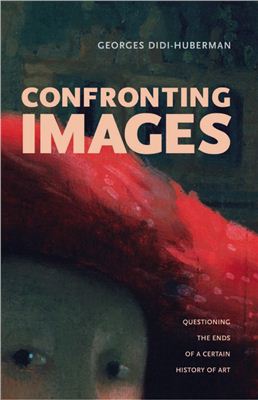Pennsylvania State University Press, 2005. - 310 pages.
When the French edition of Confronting Images appeared in 1990, it won immediate acclaim because of its far-reaching arguments about the structure of images and the histories ascribed to them by scholars and critics working in the tradition of Vasari and Panofsky. According to Didi-Huberman, visual representation has an "underside" in which seemingly intelligible forms lose their clarity and defy rational understanding. Art historians, he goes on to contend, have failed to engage this underside, where images harbor limits and contradictions, because their discipline is based upon the assumption that visual representation is made up of legible signs and lends itself to rational scholarly cognition epitomized in the "science of iconology."
To escape from this cul-de-sac, Didi-Huberman suggests that art historians look to Freud's concept of the "dreamwork," not for a code of interpretation, but rather to begin to think of representation as a mobile process that often involves substitution and contradiction. Confronting Images also offers brilliant, historically grounded readings of images ranging from the Shroud of Turin to Vermeer's Lacemaker.
When the French edition of Confronting Images appeared in 1990, it won immediate acclaim because of its far-reaching arguments about the structure of images and the histories ascribed to them by scholars and critics working in the tradition of Vasari and Panofsky. According to Didi-Huberman, visual representation has an "underside" in which seemingly intelligible forms lose their clarity and defy rational understanding. Art historians, he goes on to contend, have failed to engage this underside, where images harbor limits and contradictions, because their discipline is based upon the assumption that visual representation is made up of legible signs and lends itself to rational scholarly cognition epitomized in the "science of iconology."
To escape from this cul-de-sac, Didi-Huberman suggests that art historians look to Freud's concept of the "dreamwork," not for a code of interpretation, but rather to begin to think of representation as a mobile process that often involves substitution and contradiction. Confronting Images also offers brilliant, historically grounded readings of images ranging from the Shroud of Turin to Vermeer's Lacemaker.

